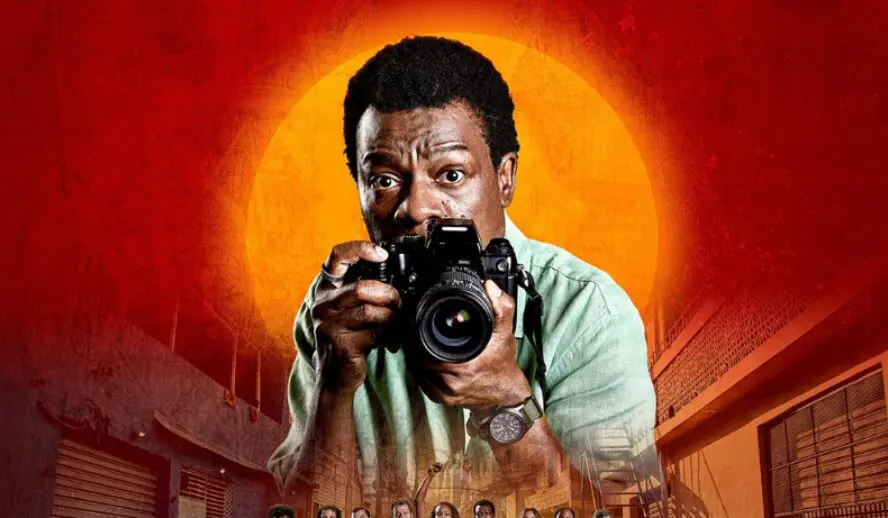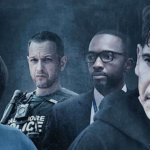Table of Contents

Building on a legacy that profoundly shaped national culture, ‘City of God: The Fight Rages On’ had a significant challenge to face: not only honoring the original film’s narrative but also updating the story to reflect more contemporary issues.
City of God
‘City of God’ (2002) is a critically acclaimed Brazilian crime drama set in the favelas (slums) of Rio de Janeiro directed by Fernando Meirelles and co-directed by Kátia Lund. The film is based on the 1997 novel of the same name by Paulo Lins, which was inspired by real events of the rise of organized crime in the neighborhood called “Cidade de Deus” (City of God).
Based on the work of the original novel’s writer Paulo Lins, the spin-off takes place twenty years after the events of the feature film, in the early 2000s. Based on the memories of Buscapé “Rocket” (Alexandre Rodrigues), the production portrays the impact of conflicts between rival gangs, a very currupt law enforcement, and drug dealers in the lives of the community’s residents.
Things to do:
- Subscribe to The Hollywood Insider’s YouTube Channel, by clicking here.
- Limited Time Offer – FREE Subscription to The Hollywood Insider
- Click here to read more on The Hollywood Insider’s vision, values and mission statement here – Media has the responsibility to better our world – The Hollywood Insider fully focuses on substance and meaningful entertainment, against gossip and scandal, by combining entertainment, education, and philanthropy.
The series
The series streams on HBO Max and the first episode begins by reintroducing us to familiar territory: the dangerous streets of the favela, where violence and survival are intertwined. The opening sequence is almost a perfect match to the opening sequence of the original film. The fast pace is shown in every element, from the performances and the cinematography, to the editing and the music. The atmosphere is immediately intense, with fast-paced action and a very palpable sense of danger looming over the characters.
WATCH THE TRAILER of the Film and the Revolution: ‘Can I Go Home Now?’
The Children Around the World Continue to Ask the question
The cast: old and new
The cast is composed of returning faces from the original film and a couple new ones and is one of the stronger elements of the show so far. Actors reprising their roles from the original film bring a wealth of depth to their characters, who are no longer a teen or young adult, but now more world-weary. The lingering trauma and hardened attitudes that come with surviving the brutal environment they had been exposed to in such formative years is very expertly portrayed. Our beloved Buscapé “Rocket” (who now goes by Wilson) returns as a recognized police photographer. The series expertly reintroduces several characters from the film, showing how their lives have evolved. It’s thrilling to see Alexandre Rodrigues return to his iconic role. This time, Rocket’s mission is different: where once he captured the harsh realities of his community, now he seeks to highlight its more positive aspects.
Related article: – Want GUARANTEED SUCCESS? Remove these ten words from your vocabulary| Transform your life INSTANTLY
Related article: Queer Stories: Pride Doesn’t Have To End With June – LGBTQ Movies/TV (Part 2)
We also follow Rocket’s best friend, Stingy “Barbantinho” (Edson Oliveira). Now the president of the residents’ association, he serves as a stabilizing force amidst the divisions within the favela, alongside Cinthia (Sabrina Rosa), the association’s founder. Cinthia, the widow of Knockout Ned, continues his legacy of leadership but she actually leads the community to a better place. Their son, Delano, teaches jiu jitsu, fighting daily to steer the children of the community away from crime. Roberta Rodrigues shines as Berenice, the widow of the infamous bandit from The Tender Trio. She has become a maternal figure to the community, committed to helping everyone in the City of God. Meanwhile, Thiago Martins portrays Bradock, the boy who killed Lil Zé. After years in prison, Bradock returns to reclaim his former status as leader of the drug trade. But the favela has a new kingpin, Curió (Marco Palmeira). Unlike Lil Zé, Curió prefers diplomacy but isn’t afraid to use violence when necessary. His former right hand man and someone he claims to consider his son, Bradock, is trying to reclaim “The Apartment’s Corner”.
New characters like Jerusa (Andréia Horta), a lawyer entrenched in the criminal world, promise to be central to the unfolding plot. Returning faces like Reginaldo “Melonhead” (Kiko Marques), a corrupt cop from the original film, keep the series deeply connected to its roots. Overall, the cast delivers powerful performances that are crucial to the show’s emotional depth and authenticity. Whether familiar or new to the world of ‘City of God’, these actors breathe life into the story, making it both a continuation of the original film’s legacy and a fresh, compelling narrative in its own right.
Related article: EVOLUTION: Every Ryan Gosling Role From 1995 to 2020, All Performances Exceptionally Poignant
Related article: EVOLUTION: Every Henry Cavill Role From 2001 to 2021, All Performances Exceptionally Poignant
Related article: Desperate Lies: Netflix’s First Brazilian Soap Opera
First episode: first impressions
The first episode of ‘City of God: The Fight Rages On’ dives headfirst into the relentless cycles of poverty, crime, and violence that continue to define the favela. Initially, the idea of a series following such a complete and iconic film as ‘City of God’ felt unnecessary. Yet, within minutes, the storytelling proved to be captivating and I was hooked. The reality remains stark: some things never change, while others only worsen – as Rocket himself says. The writing paints a bleak picture of a community still trapped in the same conflicts, despite the passage of time. However, moments of resilience and humanity shine through, suggesting that even in the darkest of places, there is a desire for change and redemption. Wilson “Rocket” quickly reclaims his role as a captivating protagonist and narrator, guiding us through the familiar yet evolved world of the City of God. His words resonate powerfully: “I search for life, but always find death.” The harsh truth is that, for many in the City of God, the search for a better life often leads to dead ends. The series takes the thematic groundwork laid by the original film and deepens it, exploring not only the immediate violence but the long-term consequences of a life lived in such a harsh environment.
Related article: Understanding the Star Wars Timeline
Related article: A Tribute to Francis Ford Coppola: One of Cinema’s Unforgettable Directors | ‘Megalopolis’, ‘The Godfather’ & More
Related article: #metoo Revolution: Powerful Questions That Need Answers
Related article: FACT-CHECKED Series: Timothee Chalamet and 32 Facts about The Young Superstar
Related article: The Real Life Fall Guys of the Film Industry | Stunt Doubles
Visually, ‘City of God: The Fight Rages On’ excels, maintaining the raw, immersive style that made the original film so impactful while introducing fresh cinematic elements suited to a series format. Similar to the original film, the series adopts a documentary-like realism, with natural lighting and a raw, unscripted feel to many of the shots. Rapid cuts and shaky handheld shots immerse viewers in the chaos of gang warfare and survival, making them feel the adrenaline and danger that infiltrates daily life in the favela. The camera often moves with the characters, adding to the frantic pace of these sequences. Yet, the cinematography also knows when to slow down and focus on the emotional core of the story, allowing the weight of the characters’ experiences to sink in.
Related article: Top 10 South Park Characters | Who Makes the Cut? Kenny, Chef, Butters, Towelie, Eric?
Related article: In-Depth Analysis | The Unexpected Queerness of ‘Bob’s Burgers’: Why the Show is an Animated Ally
Related article: Is Netflix’s ‘One Day’ Worth All Your Tears?
Overall, the first episode of ‘City of God: The Fight Rages On’ sets a powerful tone for what promises to be a thought-provoking series. It reestablishes the world of the favelas with sharp storytelling and richly developed characters. Fans of the original film will find much to appreciate, while new viewers will be drawn into this raw and gripping portrayal of life in one of the world’s most dangerous neighborhoods.
Cast: Wayne LeGette, Alexandre Rodrigues, Andréia Horta, Thiago Martins, Roberta Rodrigues, Marcos Palmeira
Cinematography: Cristiano Conceição | Director: Aly Muritiba | Writer: Renata Di Carmo, Rodrigo Felha, Sergio Machado, Aly Muritiba, Armando Praça, Estevão Ribeiro | Producers: Izzy Naconesky
By Julia Maia
Click here to read The Hollywood Insider’s CEO Pritan Ambroase’s love letter to Cinema, TV and Media. An excerpt from the love letter: The Hollywood Insider’s CEO/editor-in-chief Pritan Ambroase affirms, “We have the space and time for all your stories, no matter who/what/where you are. Media/Cinema/TV have a responsibility to better the world and The Hollywood Insider will continue to do so. Talent, diversity and authenticity matter in Cinema/TV, media and storytelling. In fact, I reckon that we should announce “talent-diversity-authenticity-storytelling-Cinema-Oscars-Academy-Awards” as synonyms of each other. We show respect to talent and stories regardless of their skin color, race, gender, sexuality, religion, nationality, etc., thus allowing authenticity into this system just by something as simple as accepting and showing respect to the human species’ factual diversity. We become greater just by respecting and appreciating talent in all its shapes, sizes, and forms. Award winners, which includes nominees, must be chosen on the greatness of their talent ALONE.
I am sure I am speaking for a multitude of Cinema lovers all over the world when I speak of the following sentiments that this medium of art has blessed me with. Cinema taught me about our world, at times in English and at times through the beautiful one-inch bar of subtitles. I learned from the stories in the global movies that we are all alike across all borders. Remember that one of the best symbols of many great civilizations and their prosperity has been the art they have left behind. This art can be in the form of paintings, sculptures, architecture, writings, inventions, etc. For our modern society, Cinema happens to be one of them. Cinema is more than just a form of entertainment, it is an integral part of society. I love the world uniting, be it for Cinema, TV, media, art, fashion, sport, etc. Please keep this going full speed.”
More Interesting Stories From The Hollywood Insider
– Want GUARANTEED SUCCESS? Remove these ten words from your vocabulary| Transform your life INSTANTLY
– A Tribute to Martin Scorsese: A Complete Analysis of the Life and Career of the Man Who Lives and Breathes Cinema
– Do you know the hidden messages in ‘Call Me By Your Name’? Find out behind the scenes facts in the full commentary and In-depth analysis of the cinematic masterpiece
– A Tribute To The Academy Awards: All Best Actor/Actress Speeches From The Beginning Of Oscars 1929-2019 | From Rami Malek, Leonardo DiCaprio To Denzel Washington, Halle Berry & Beyond | From Olivia Colman, Meryl Streep To Bette Davis & Beyond
– In the 32nd Year Of His Career, Keanu Reeves’ Face Continues To Reign After Launching Movies Earning Over $4.3 Billion In Total – “John Wick”, “Toy Story 4”, “Matrix”, And Many More









